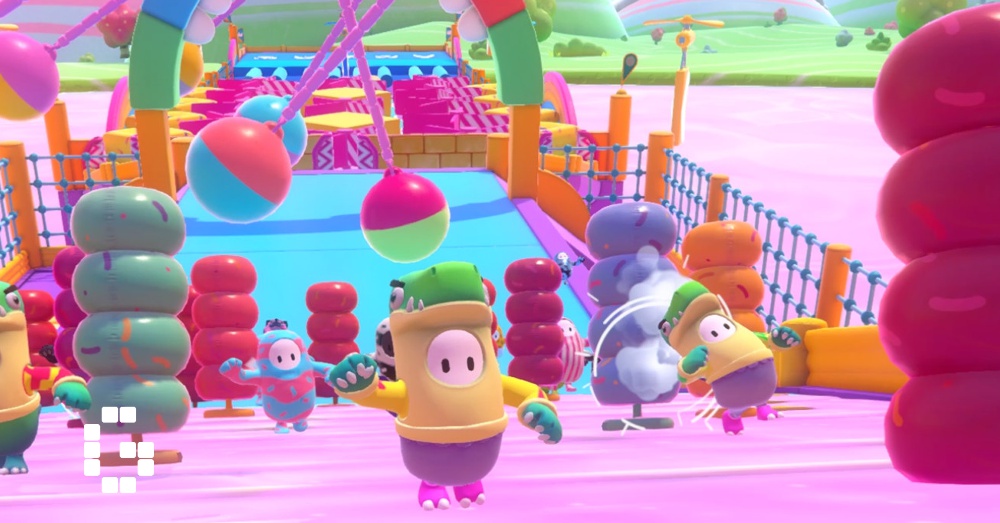Like many other people, I was shocked to read about Alex Hutchinson and his terrible take on streaming videogames. For those not in the loop, the creative director of Google Stadia Games & Entertainment took to twitter today to suggest a fairly radical take on the nature of publisher-streamer relations:
The real truth is the streamers should be paying the developers and publishers of the games they stream. They should be buying a license like any real business and paying for the content they use.
— Alex Hutchinson (@BangBangClick) October 22, 2020
Naturally, everyone in the greater games industry has chimed in, disagreeing with the take. Even Google and YouTube Gaming’s Ryan Watt have refused to take this man’s side here.
Licensing fees are a bit of a hot button topic right now, with recent months seeing Twitch taking a harsh step against people who use unlicensed music in their streams. According to Hutchinson, game developers should follow suit, charging streamers a licensing fee if they want to use their videogames because they “didn’t pay for” the games.

I’m Not Gonna Tell You How To Do Your Job, But…
What the dear Creative Director is forgetting here is that more often than not streamers actually do pay for their games. The only times they don’t is when they’re given a game by a publisher, usually with express consent to stream it.
That’s… kind of the business model.
I shouldn’t have to be explaining this to a games industry veteran, but them’s the ropes. Streamers are what you call Opinion Leaders or Influencers, and them being given free games is always with the intention that people watching the stream will buy their own copies.
The only people not being given PR copies of games are small-time streamers, who are buying the games they stream anyways. It’s hard to argue that they’re not paying for stuff since Steam has this weird bug that sends you a receipt for things you paid for after you’ve paid for them.
So, the inherent core of his statement is already a lie. Streamers are already paying for their games, and the ones who aren’t are being given free copies with explicit permission to use them for streaming. Considering the developers and the streamers are both consenting in this arrangement, I fail to see what Hutchinson is on about.
That’s not even getting into the actual business benefits of a streamer. I’ll give you one guess as to why Among Us is one of the most popular games that didn’t come out this year, and it’s not because people suddenly got horny for astronauts. Heck, streamers got the game so popular they had to can a planned sequel because it made more sense to just keep supporting this one.

Music Licensing Sucks Too
The most laughable thing about wanting games to be more like the music industry is that the music industry sucks. Sports games have one of the worst records for being remade simply because record labels won’t re-license the music for these games a second time. Not even Tony Hawk’s Pro Skater 1+2 managed to pull off getting its whole soundtrack back, and that game’s still a miracle of a success story about dealing with record labels.
Similarly, even TV shows like Scrubs are constantly re-edited for streaming, simply because the networks can’t get the rights to the music for streaming purposes. The fact of the matter is that right now record labels get to write the rules on a lot of this stuff. While you can argue whose in the “right” it makes for an inferior consumer experience.
It’s not just about remakes, either. Remember, as per Twitch’s guidelines, streamers can lose their VODs for having music on them. Think about Tony Hawk without any of the ska music. Or Metal Gear Solid V without any of its licensed musical numbers. In these cases, despite the fact that the game developers have paid for the music, streamers are essentially being penalized for something that totally wasn’t their fault.
The point here is streaming is already more difficult than just playing a game and turning on OBS. By adding one more step on top of it with licensing you’re just asking for streamers to stop existing. And as we covered before, that’s probably your cheapest form of marketing.

OK, So What About Story Games?
One argument you often hear is that streamers remove the need to play a game. Especially with linear story-heavy games, you might have a point. The solution here’s a little philosophical, so you’ll have to bare with me.
On the surface, it makes sense. Why should I need to play a game after I’ve watched someone else play it? From a business perspective, these freeloading viewers are getting all the goods of the game without ever paying a cent for it.
I think what many business-types like Hutchinson here forget is that people actually like games. I’ve watched the SuperBestFriends (RIP) play Detroit: Become Human. After they were done do you know what I did? I played it myself anyways. Sure, maybe I lost out on the first-time experience knowing that robots can be a metaphor for Black people, but it doesn’t mean I didn’t have some memorable experience when I played it later.
What about those times we don’t end up getting the game? Anecdotally, I don’t think these people were ever going to buy the game. To imply that these count as “stolen” sales is just intellectually dishonest. Some of us just like to watch Canadians suck at games, even if they’re games we personally don’t care for. If no one’s buying your game, it’s not the streaming industry’s fault.
The problem with this marketing take is that it discounts the actual craft of being a streamer. They’re a lot more than just shopping catalogues for games, and for a lot of viewers they’d rather watch their favorite streamer play spider solitaire than a raw video of the latest cinematic masterpiece. Playing a game and watching a streamer play a game are two separate forms of media consumption, and to act like one is a subset of the other is just silly.
I mean, if people who watch basketball meant they wouldn’t need to play basketball, we wouldn’t have new NBA athletes who grew up looking up to Michael Jordan.

Final Thoughts
Look, I get it. Now more than ever, it’s a scary time to crunch numbers. There’s an extra big onus to do well on your next big project, if anything just to keep you and your entire team housed for the length of the next project. It’s scary.
But imagine a life without streamers. Your only marketing would be ad companies, and those have to be hired. You’re talking about spending large sums of money that could be used to develop your game to run ads, when sending a streamer a free copy of your game at worst costs you the price of one game.
This attitude that streamers are just parasites robbing game developers of sales is not only in poor taste, it’s also factually incorrect. If anything, especially indie developers, streamers are your best bet at getting your game out there.
But hey, trust someone involved with the Stadia to fundamentally misunderstand anything about consumer behavior, I guess.










![[EXCLUSIVE] Inside Japan’s Indie Game Revolution – An Interview with BitSummit Organizer Masahiko Murakami](https://cdn.gamerbraves.com/2025/05/BitSummit-Orgainzer_Interview_FI-360x180.jpg)
![[EXCLUSIVE] The Art of Adaptation: Developer Interview Details the OVERLORD Mobile RPG Lord of Nazarick](https://cdn.gamerbraves.com/2025/05/Lord-of-Nazarick_Interview_FI-360x180.jpg)
![[EXCLUSIVE] Taking Gundam in Bold New Directions – Interview with GQuuuuuuX Director Kazuya Tsurumaki](https://cdn.gamerbraves.com/2025/04/Kazuya-Tsurumaki_Interview_FI-1-360x180.jpg)


![[SEA Exclusive] From Shadows to Shipwrecks – Jennifer English Talks About Bringing Emotional Depth to Clair Obscur: Expedition 33](https://cdn.gamerbraves.com/2025/04/Clair-Obscur-Jennifer-English_Interview_FI-360x180.jpg)

![[EXCLUSIVE] Do the Game Interview – An Intimate Look at the Challenges of Game Development](https://cdn.gamerbraves.com/2025/04/Do-the-Game_Interview_FI-1-360x180.jpg)
![[EXCLUSIVE] Interview with the Minds Behind of Den of Wolves – 10 Chambers’ New Sci-Fi Heist FPS](https://cdn.gamerbraves.com/2025/04/Den-of-Wolves_Interview_FI-360x180.jpg)








![[GUIDE] SD Gundam G Generation Eternal Unit Tier List](https://cdn.gamerbraves.com/2025/04/SD-Gundam-G-Generation-Eternal-Tier-List_Review_FI-360x180.jpg)
![[GUIDE] Clair Obscur: Expedition 33 Tier List – From Gustave to Verso: Who Deserves Your Party Slot?](https://cdn.gamerbraves.com/2025/04/Clari-Obscur-Expedition-33-Character-Tier-List_Guide_FI-360x180.jpg)
![[GUIDE] Mastering Clair Obscur: Expedition 33 – Essential Tips for Success](https://cdn.gamerbraves.com/2025/04/Expedition-33_Guide_FI-360x180.jpg)